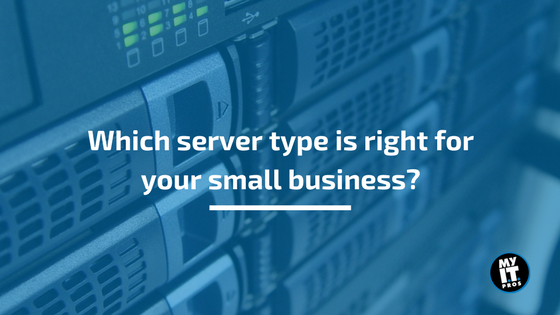
Maybe your fall line really took off. Maybe you’ve picked up a client with sensitive data. Or maybe you’re running a resource-heavy CRM application. Whatever the reason, you’re about to embark on a pivotal moment in the history of your small business: selecting and installing your first server. But before you make a decision, you need to learn a little bit about your options. Use this guide to help you understand the ins and outs of picking a server that’s right for your needs.
Dedicated servers
Built for security and stability, dedicated servers are physical hardware stored on-premise or in a separate facility. They look a lot like desktop computers, but with server-grade hardware. Small businesses can choose to buy their own servers and host them in-house, or lease from a hosting company who houses the equipment in their space. Most businesses opt to rent because it doesn’t require a hefty upfront investment, and usually includes maintenance and operational support. Plus, providers may offer backups in case the server is damaged.
Here’s a summary of some of the benefits associated with dedicated servers:
- Security: Only your employees have access to your dedicated server, making this a great choice if you work with sensitive data or if you’re concerned about hacks.
- Compliance: This type of server is also better for businesses that must conform to industry regulations, such as HIPAA hosting security standards.
- Reliability: Because they don’t depend on a live internet connection, dedicated servers are much less likely to experience downtime.
In general, go with a dedicated server if you project steady, predictable growth for your business, or if you deal with mission-critical data that absolutely cannot be compromised. It also suits high-traffic sites and eCommerce stores, and works well for businesses involved in financial trading or real-time data analytics, where downtime could cause a critical failure.
Cloud servers
For all they offer in reliability, physical servers come with some limitations—companies may outgrow them quickly or lack the technical know-how to manage them. Cloud servers, on the other hand, are virtual, meaning they can be managed from an online platform. They provide the following perks:
- Rapid deployment: A cloud server can be deployed remotely from your laptop, a process that’s almost instant.
- External maintenance and support: The responsibility of managing and maintaining the server falls on your provider, not you.
- Low cost: Your company pays a fee to use the cloud provider’s service, rather than investing in costly physical infrastructure.
Cloud servers are virtual, meaning they can be built and managed from an online platform. Essentially, your provider takes an enterprise-grade server and splits it up into many smaller virtualized servers. Then they assign one of those to you and give you a platform to access it remotely.
Cloud servers have many benefits for growing companies, since they may not be able to predict their computing needs several years down the line. They are also a good choice for eCommerce sites that want to be able to handle a sudden increase in traffic or for anyone who needs to access or deploy new servers quickly.
Hybrid servers
See the problem with the cloud versus dedicated server binary? While dedicated servers protect against downtime and hacks, they just don’t come with the convenience of a cloud server. Hybrid servers offer a solution right in the middle—they’re the Goldilocks of servers. With this option, you’re guaranteed 100% of the server space (rather than having to share as you would with a cloud server), but you’ll still have a virtualized server, so you can reboot and deploy new servers quickly.
- Low cost, high performance: Hybrid servers’ performance matches that of dedicated servers, but with far less expense.
- Rapid deployment, lower risk: Hybrid servers allow businesses to upgrade and adjust servers rapidly, while still enjoying some of the security benefits of a physical server.
Because hybrid servers make it easier to deploy new servers, they’re an ideal choice for tech companies and larger businesses that use separate testing and staging environments.
Of course, you don’t have to make this decision all by yourself! While the information outlined above can get you started, keep in mind that a server is an essential part of your business, so making sure you find one compatible with your needs is incredibly important. At MyITPros, we’re happy to run you through the pros and cons, as well as how these apply to your specific situation.



